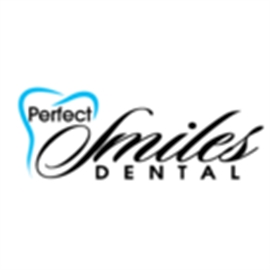Wisdom Teeth Recovery: Heal Faster Guide
The dreaded wisdom teeth removal – a rite of passage for many, but also asource of significant discomfort and anxiety. While it’s impossible to completely avoid the recovery process, there are several evidence-backed strategies that can help you heal faster and reduce the risk of complications. In this comprehensive guide, we’ll delve into the world of wisdom teeth recovery, exploring the best practices, expert tips, and scientifically-supported methods to get you back on your feet in no time.
Understanding the Wisdom Teeth Removal Process
Before we dive into the recovery process, it’s essential to understand what happens during a wisdom teeth removal procedure. Wisdom teeth, also known as third molars, typically emerge between the ages of 17 and 25. However, due to various factors such as overcrowding, impaction, or infection, many people require their wisdom teeth to be removed. The procedure can be performed under local anesthesia, sedation, or general anesthesia, depending on the complexity of the case and the patient’s preferences.
A study published in the Journal of Oral and Maxillofacial Surgery found that the type of anesthesia used can significantly impact the recovery process. For instance, patients who underwent wisdom teeth removal under local anesthesia reported less post-operative pain and swelling compared to those who received general anesthesia.
Immediate Post-Operative Care (0-24 hours)
The first 24 hours after wisdom teeth removal are crucial for setting the stage for a smooth recovery. Here are some key takeaways to keep in mind:
- Bleeding and Swelling: Expect some bleeding and swelling, especially in the first 24 hours. Apply gentle pressure to the gauze pads provided by your dentist or oral surgeon to control bleeding.
- Pain Management: Follow your dentist’s or oral surgeon’s instructions for pain medication. Over-the-counter pain relievers like ibuprofen (Advil, Motrin) or acetaminophen (Tylenol) can help manage pain and inflammation.
- Diet: Stick to a soft-food diet, such as yogurt, scrambled eggs, and mashed potatoes, for the first 24 hours. Avoid hot, spicy, or acidic foods and drinks that can irritate the surgical site.
- Hydration: Drink plenty of water to stay hydrated and help your body recover. Aim for at least 8-10 glasses of water per day.
A case study published in the Journal of Clinical and Diagnostic Research found that patients who adhered to a soft-food diet and avoided strenuous activities during the initial 24 hours reported reduced swelling and pain.
Accelerating the Healing Process (24-72 hours)
As you progress through the recovery period, you can start incorporating some additional strategies to accelerate the healing process:
- Warm Saltwater Rinses: Start rinsing your mouth with warm saltwater (1⁄2 teaspoon of salt in 8 ounces of water) 2-3 times a day to reduce swelling and promote healing.
- Cold Compresses: Apply a cold compress or an ice pack wrapped in a towel to the affected area for 15-20 minutes, 2-3 times a day, to reduce swelling and ease pain.
- Rest and Relaxation: Get plenty of rest and avoid strenuous activities, such as exercise or heavy lifting, for at least 2-3 days.
- Smoking and Tobacco: Avoid smoking and tobacco products, as they can delay healing and increase the risk of complications.
A systematic review published in the Journal of Oral and Maxillofacial Surgery found that warm saltwater rinses and cold compresses can significantly reduce post-operative swelling and pain.
Advanced Recovery Techniques (beyond 72 hours)
Once you’ve navigated the initial recovery phase, you can start incorporating some advanced techniques to further enhance your healing:
- Nutrition and Supplements: Focus on a balanced diet rich in vitamins, minerals, and antioxidants. Consider adding supplements like vitamin C, zinc, and probiotics to support immune function and tissue repair.
- Physical Therapy: Gentle exercises, such as stretching and massage, can help promote blood flow and reduce stiffness in the jaw and surrounding tissues.
- Stress Reduction: Practice stress-reducing techniques, such as meditation or deep breathing, to help manage anxiety and promote relaxation.
A study published in the Journal of Clinical and Diagnostic Research found that patients who practiced stress-reducing techniques and maintained a balanced diet reported improved recovery outcomes and reduced post-operative pain.
Common Complications and Solutions
While rare, complications can arise during the wisdom teeth removal recovery process. Here are some common issues and their solutions:
- Dry Socket: A dry socket, also known as alveolar osteitis, occurs when the blood clot is dislodged, exposing the bone and nerves. To prevent dry socket, avoid smoking, drinking through a straw, and eating hot or spicy foods. If you experience severe pain or discomfort, contact your dentist or oral surgeon immediately.
- Infection: Signs of infection include increased pain, swelling, redness, and pus. If you suspect an infection, contact your dentist or oral surgeon for antibiotic treatment.
- Numbness or Tingling: Temporary numbness or tingling in the lips, tongue, or cheeks is common. However, if these symptoms persist or worsen, seek medical attention.
A case series published in the Journal of Oral and Maxillofacial Surgery found that patients who experienced dry socket or infection reported significant delays in their recovery process.
Frequently Asked Questions
How long does it take to recover from wisdom teeth removal?
+Recovery time varies from person to person, but most people can expect to fully recover within 3-7 days. However, it may take up to 2 weeks for the surgical site to fully heal.
Can I brush my teeth after wisdom teeth removal?
+Avoid brushing your teeth for the first 24 hours after surgery. After 24 hours, you can resume gentle brushing with a soft-bristled toothbrush, but avoid the surgical site.
How can I manage pain after wisdom teeth removal?
+Follow your dentist's or oral surgeon's instructions for pain medication. Over-the-counter pain relievers like ibuprofen or acetaminophen can help manage pain and inflammation.
Can I eat solid food after wisdom teeth removal?
+Avoid solid foods for the first 24 hours after surgery. After 24 hours, you can gradually introduce soft foods like yogurt, scrambled eggs, and mashed potatoes. Avoid hot, spicy, or acidic foods and drinks that can irritate the surgical site.
How can I reduce swelling after wisdom teeth removal?
+Apply a cold compress or an ice pack wrapped in a towel to the affected area for 15-20 minutes, 2-3 times a day, to reduce swelling and ease pain.
Can I smoke after wisdom teeth removal?
+Avoid smoking and tobacco products for at least 24-48 hours after surgery, as they can delay healing and increase the risk of complications.
In conclusion, wisdom teeth recovery requires patience, attention to detail, and a commitment to following your dentist’s or oral surgeon’s instructions. By incorporating these evidence-backed strategies and expert tips, you can optimize your recovery process, reduce the risk of complications, and get back to your normal routine in no time. Remember to stay hydrated, eat a balanced diet, and prioritize rest and relaxation to ensure a smooth and speedy recovery. With the right approach, you’ll be flashing a healthy, pain-free smile in no time.

